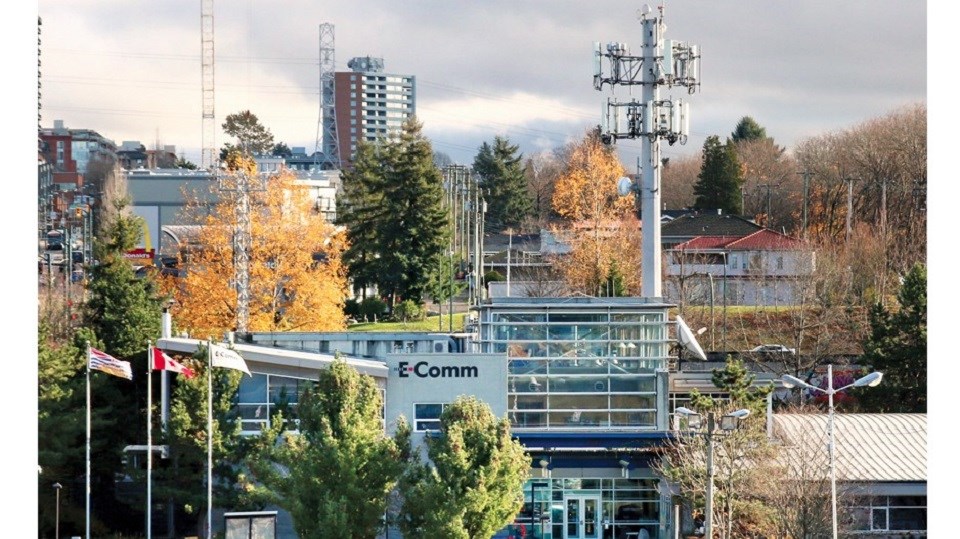As an atmospheric river pummelled southwestern sa国际传媒 with rain in mid-November, E-Comm 911 operators at the province’s largest emergency communications centre were thrust into high alert as flooding intensified in Abbotsford.
As many as 80 workers are on call at E-Comm any given shift as the organization facilitates 911 calls for 73 police and fire agencies in the Lower Mainland and parts of Vancouver Island.
But as the disaster unfolded, the organization issued an “urgent” callout, requesting more workers come in to help with first responders’ evacuation efforts, according to an E-Comm spokeswoman.
And as more staff arrived, E-Comm deployed its internal “incident command structure” to tighten management of the disaster as it co-ordinated calls with first responder agencies.
It was not a normal day at the office.
With extreme weather events expected to increase in the coming years, E-Comm and other organizations throughout sa国际传媒 will have to adjust to this new normal as they assist with the response and recovery.
“When the Abbotsford Police Department requested all Sumas Prairie residents to call 911 if they were unable to evacuate safely, E-Comm allocated additional resources to Abbotsford’s call-taking and dispatch operations to be able to answer these calls as quickly as possible,” communications manager Kaila Butler told BIV in an email.
“Additional 911, police call-taking and dispatch resources were also called in immediately and have remained in place [in the following days] … to support the Abbotsford region, and other 911 callers from across the province, due to the potential for increased call volumes.”
E-Comm owns the region’s Wide-Area Radio Network used by police, fire and ambulance workers in the Lower Mainland, allowing cross-communication between the three services.
Within the radio system, agencies can communicate in shared “talk groups” to better co-ordinate during a major event, according to Butler.
“In the event of a large-scale disaster resulting in widespread damage to infrastructure, E-Comm’s radio system can revert to more localized operation and first responders will be able to continue communicating with each other,” she said. “This can be absolutely vital to successful emergency response during a major disaster such as what we’re seeing with the flooding in Abbotsford.”
Meanwhile, logistical concerns in the immediate aftermath of the floods, such as the closure of highways, have been at the fore for security firms such as Fusion Security Inc.
The Burnaby-based company operates in Chilliwack and has faced challenges getting some employees and resources in and out of the Fraser Valley city, according to vice-president Harry Stausgaard.
And amid government restrictions on gassing up non-essential vehicles (British Columbians may fill up only 30 litres at a time), Fusion Security has been relying on its fleet of mainly hybrid electric vehicles to travel around the region.
Stausgaard said workers are also on alert for potentially tense situations as some grocery stores see shelves go empty and government-imposed gas rationing has left lines outside gas stations and what Richmond News reports as increased abuse toward staff.
“We are seeing still some tensions between farmers trying to get into their farms … and the RCMP that are trying to protect people from dangerous situations on the roadways,” Agriculture Minister Lana Popham said during a post-disaster briefing with reporters.
But Stausgaard said British Columbians have been mostly civil up to this point even as some stores and other private businesses have been left as unprotected islands amid the flood waters.
“I’ll go back to the riots during the Stanley Cup – that’s the closest thing that we had, really, to situations where we had public disorder,” Stausgaard said. “There’s not been that situation occurring in Chilliwack,” Stausgaard said.
“These are pretty rural areas. There’s not a lot of shopping malls, etc., that are being impacted. But certainly, there’s a risk of people taking advantage of the opportunity.”
Not all organizations have been significantly reallocating resources, though.
For security firm GardaWorld Corp., which employs 1,400 workers in the province, the floods have “generated a few additional hours for us here and there but nothing significant,” according to spokesman Louis-Antoine Paquin.
While Fusion has an emergency response plan prepped to go in events such as earthquakes or this month’s flooding, E-Comm’s responses have been tailored to specific kinds of disasters, with fire services taking lead on wildfires, and both police and fire services handling earthquakes or flooding.
Stausgaard noted this past summer’s wildfires required company resources to keep people out of affected areas when some residents attempted to check in on their belongings.
“At this point, people really aren’t interested going back into those areas that have been impacted yet,” he said about the floods.



